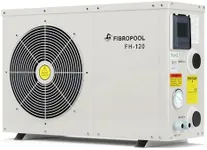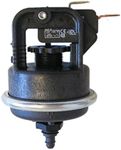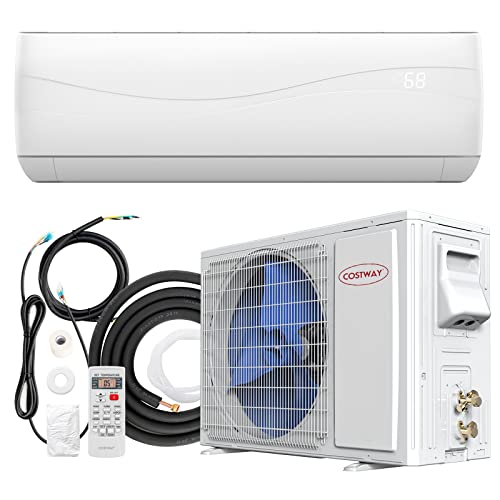Buying Guide for the Best Pool Heat Pumps
Choosing the right pool heat pump can make a big difference in how comfortable your pool is and how much you enjoy it throughout the year. The main goal is to find a heat pump that matches your pool size, climate, and how often you plan to use your pool. Understanding the key specifications will help you make a smart choice that keeps your pool at the perfect temperature without wasting energy.Heating Capacity (BTU)Heating capacity, usually measured in BTUs (British Thermal Units), tells you how much heat the pump can add to your pool water in an hour. This is important because a pump that's too small will struggle to heat your pool, while one that's too large may be inefficient. Smaller pools or spas can get by with lower BTU ratings, while larger pools need higher BTU values. To pick the right one, consider your pool's size (in gallons or square feet), how quickly you want it to heat up, and your local climate. If you live in a cooler area or want to swim year-round, a higher BTU rating is usually better.
COP (Coefficient of Performance)COP stands for Coefficient of Performance and measures how efficiently the heat pump converts electricity into heat. A higher COP means the pump uses less electricity to produce the same amount of heat, which saves you money on energy bills. COP values typically range from about 3 to 7. If you want to keep running costs low and care about energy efficiency, look for a heat pump with a higher COP. However, keep in mind that actual performance can vary depending on outside temperature and humidity.
Operating Temperature RangeThe operating temperature range tells you the lowest and highest air temperatures at which the heat pump can work effectively. This is important if you plan to use your pool in cooler months or live in a region with cold nights. Some heat pumps are designed to work even when the air is as cold as 40°F (4°C), while others need warmer conditions. If you want to extend your swimming season or live in a cooler climate, choose a model with a wider operating temperature range.
Noise LevelNoise level, usually measured in decibels (dB), indicates how loud the heat pump will be when running. This matters if your pool is close to your house or neighbors, or if you value a quiet backyard. Lower dB numbers mean quieter operation. If peace and quiet are important to you, look for heat pumps that advertise low noise or have special features to reduce sound.
Physical Size and Installation RequirementsThe physical size of the heat pump and its installation requirements affect where you can place it and how easy it will be to set up. Some heat pumps are compact and can fit in tight spaces, while others need more room for airflow and maintenance. Before buying, check the dimensions and make sure you have enough space near your pool equipment area. Also, consider if you need professional installation or if it's something you can handle yourself.
Control FeaturesControl features refer to how you set and adjust the heat pump, such as digital displays, timers, or remote controls. Some pumps offer simple manual controls, while others have advanced digital panels or can be connected to smart home systems. If you like convenience and want to easily manage your pool temperature, look for models with user-friendly controls or smart features.
Durability and Corrosion ResistanceDurability and corrosion resistance are important because pool heat pumps are exposed to water, chemicals, and outdoor weather. Look for pumps made with materials like titanium heat exchangers or corrosion-resistant coatings, especially if you have a saltwater pool. If you want your heat pump to last for many years with minimal maintenance, prioritize models known for their build quality and resistance to rust and corrosion.











